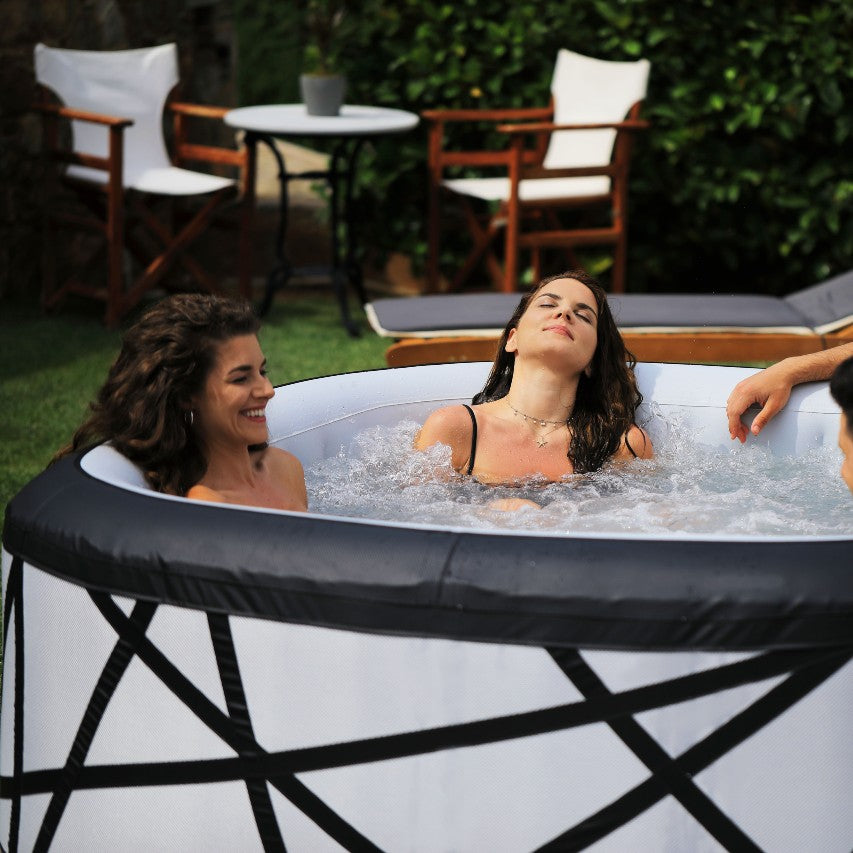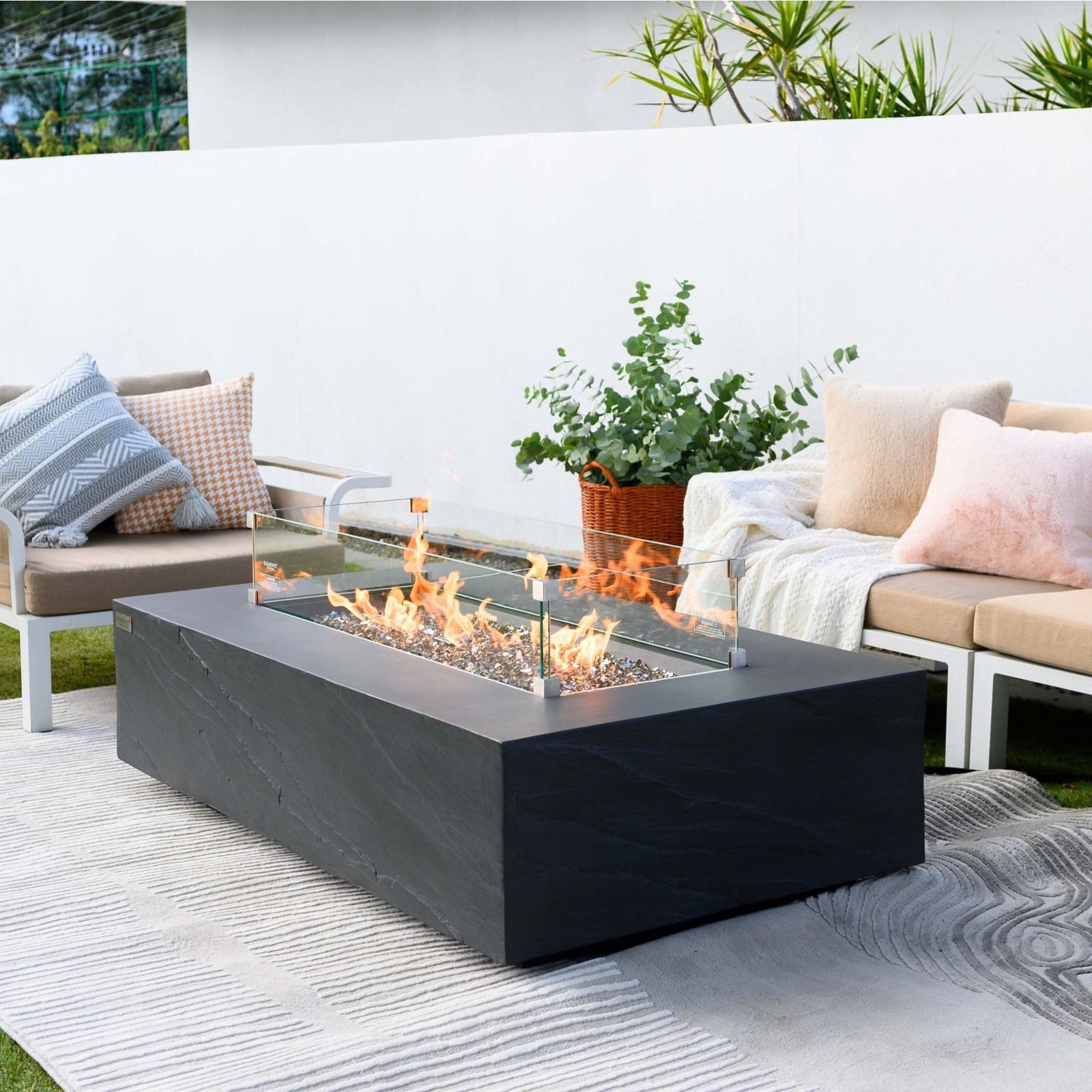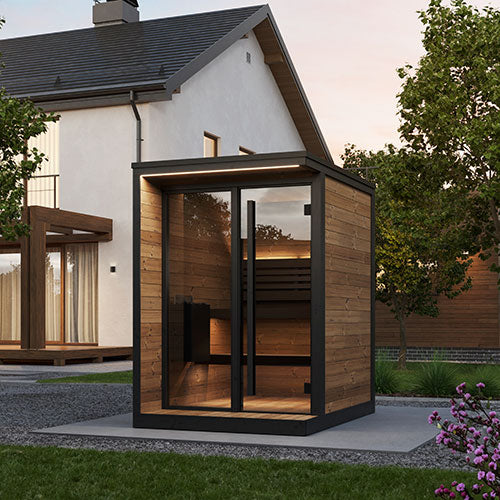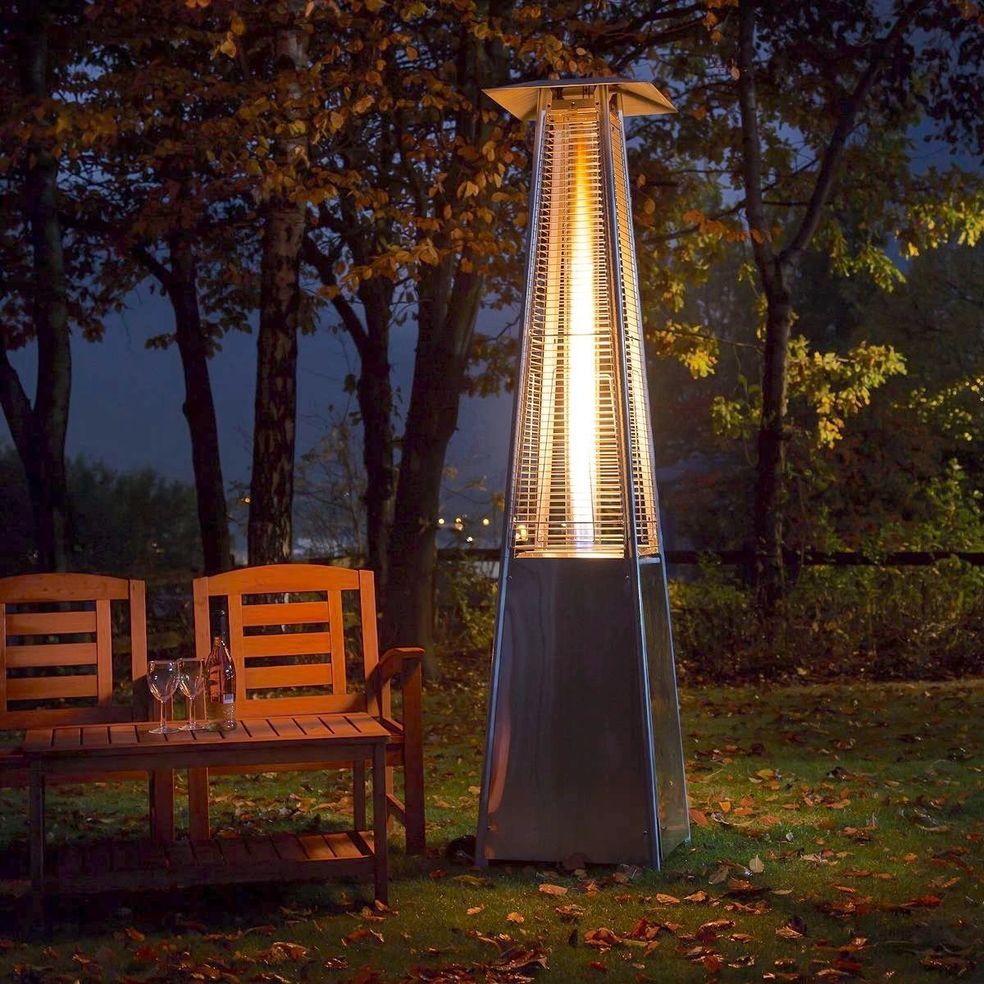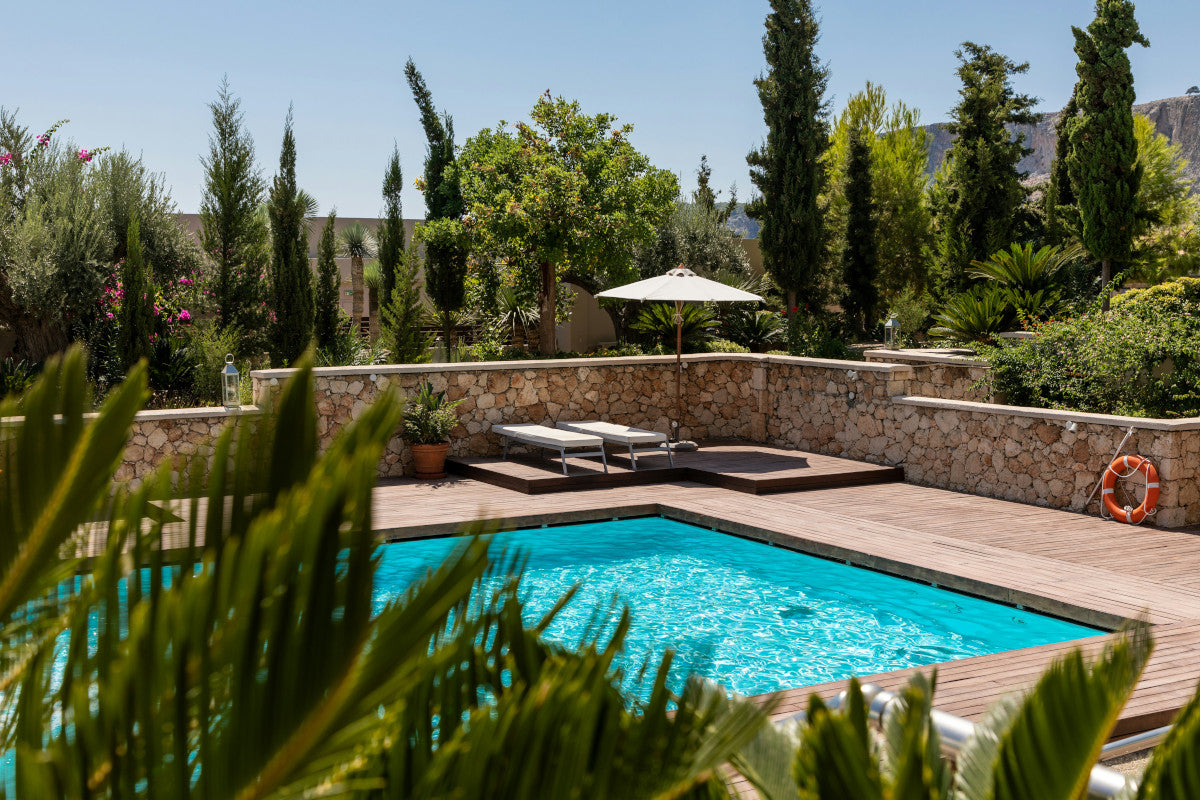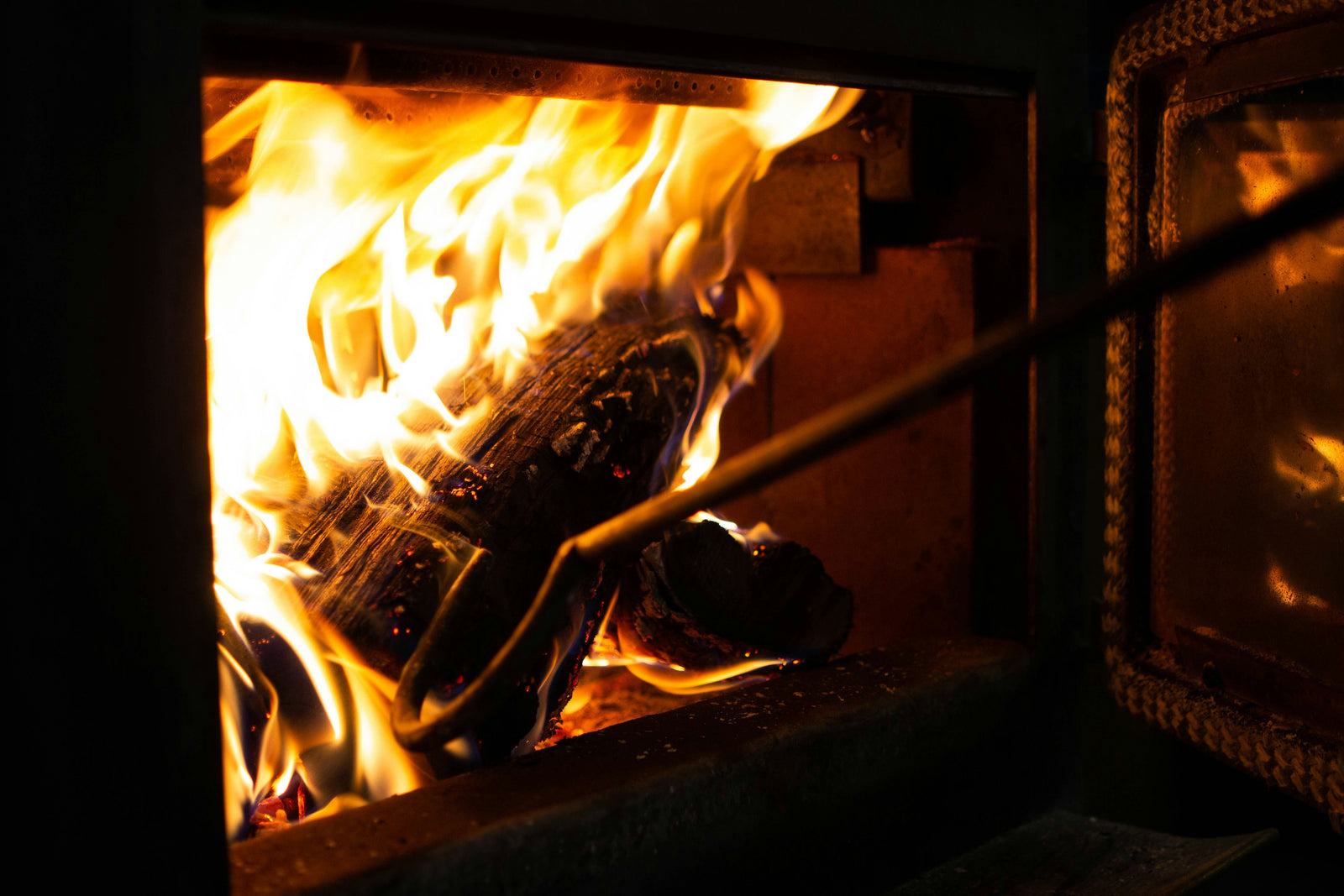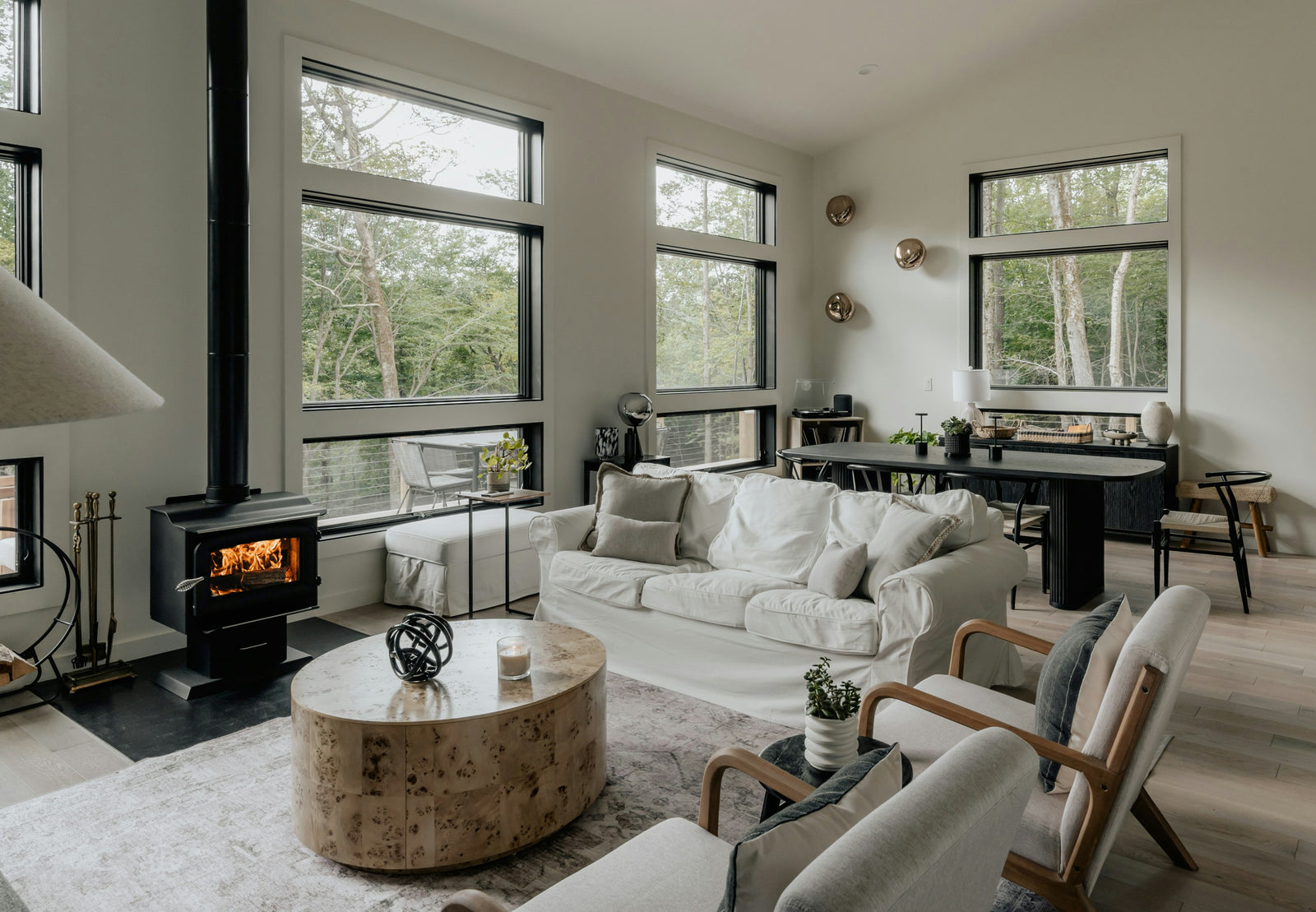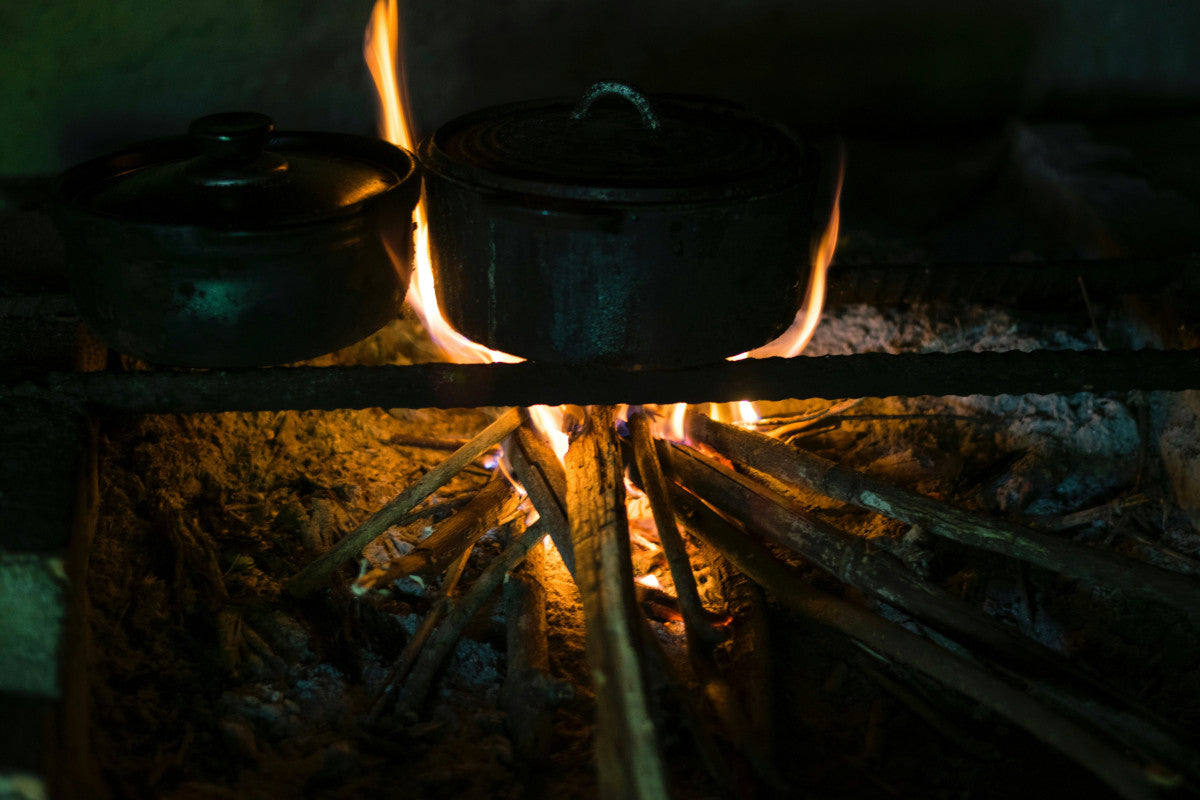The chill in the air signals the end of pool days, leaving you to count the months until your next dive. What if the fun didn't have to stop, though? A pool heat pump transforms your pool into a year-round haven.
But what size pool heat pump do I need? Pool heat pump sizing is not something you should take lightly, as it influences the efficiency of your unit along with its ability to adequately heat your pool.
Don’t stress, though - we’ll teach you how to size a pool heat pump below, consider factors like pool size, climate, and desired water temperature. You’ll also learn about other factors that matter when choosing the best pool heat pump.
For those ready to take the plunge now, Outdoor Direct offers personalized recommendations to connect you with top-tier pool heating solutions. Get in touch today and we’ll point you in the right direction.
How to Size a Pool Heat Pump: Key Factors Influencing Heat Pump Pool Heater Sizing

Proper sizing is not just about capacity - it's about matching a heat pump to your pool's specific needs to ensure energy-efficient, reliable, and consistent heating. By doing so, you extend the life of your heat pump and enjoy a comfortable swim season with peace of mind.
So, let’s talk about some of the key factors influencing pool heat pump sizing below, ensuring a comfortable oasis all year round.
Calculating Your Pool's Surface Area
The surface area of your pool dictates the amount of heat needed to raise the water to your desired temperature. Measure the length and width of your pool to calculate the area in square feet. For irregular shapes, approximate the size as close as possible.
This figure is the starting point for determining the heating power required, typically measured in British Thermal Units (BTU) per hour. We’ll come back to this later on, so keep the size of your pool in mind.
But, as a general rule, a pool in a moderate climate will require a heat pump output of approximately 50 BTUs per square foot of surface area if you aim for a temperature rise of up to 20°F. Adjust this figure upwards for cooler climates and desired higher temperatures.
Assessing Climate and Average Air Temperature
Pools in cooler regions with lower average temperatures will lose heat more rapidly, necessitating a more powerful heat pump. Conversely, warmer climates may require less heating power.
Consider the coldest month you plan to use the pool to ensure the heat pump can maintain a comfortable water temperature even when the air is chilly.
Be realistic - if you live in a climate that experiences sub-freezing temperatures like the Northeastern US, a pool heat pump is likely not going to help you use your pool in January. But, it may be able to extend your swimming season to October or November!
Determining Desired Pool Temperature and Usage Patterns
How warm do you want your pool? The desired temperature will affect the size of the heat pump, with higher temperatures requiring more heating power.
Also, consider how you use your pool. Is it for leisurely swims on the weekend, or do you need it at a consistent temperature for daily laps? Intermittent use may allow for a smaller unit, while constant use will likely require a more robust system.
So, What Size Pool Heat Pump Do I Need?

Now that you know how to size a pool heat pump, it’s just a matter of putting together your own unique variables to arrive at a conclusion. We’ll walk you through a few examples below to provide more context on what size pool heat pump you need.
Sizing a Pool Heat Pump in a Warm Climate
In a warm climate like Orlando, Florida, let's assume you want to maintain a comfortable pool temperature of 78°F.
Your pool has a surface area of 450 square feet, and the average air temperature in December is 60°F. This gives us a desired temperature rise of 18°F.
Using a conservative estimate of 10 BTUs per hour per square foot per degree Fahrenheit of temperature rise, the calculation would be:
450 sq. ft. (surface area) x 18°F (temperature rise) x 10 BTUs = 81,000 BTUs
In this scenario, a heat pump with a capacity of 143,000 BTUs is more than adequate to maintain the desired pool temperature in a warm climate.
Sizing a Pool Heat Pump in a Cooler Climate
In transitioning to a cooler climate like Boston, Massachusetts, targeting a pool temperature of 70°F can offer a comfortable swimming experience.
With a consistent pool size of 450 square feet and an average December air temperature of 40°F, the required temperature rise decreases to 30°F.
Utilizing a similar conservative estimate:
450 sq. ft. (surface area) x 30°F (temperature rise) x 10 BTUs = 135,000 BTUs
In this scenario, a heat pump with a capacity of 143,000 BTUs would be adequate to achieve the desired temperature rise. However, optimizing the available heat pump capacity is still essential.
Employing a pool cover can significantly reduce heat loss, enhancing the efficiency of the heat pump. With the combination of a pool cover and the maximum heat pump capacity, maintaining a near-desirable temperature becomes feasible, particularly during periods of low usage, such as the coldest nights.
Get a Personalized Pool Heat Pump Size Recommendation Today!
As we said from the start, you don’t have to deal with the guesswork or stress of sizing a pool heat pump on your own. The experts here at Outdoor Direct are on standby ready to guide you towards the perfect model. Or, take our quiz and get a recommendation in just a few clicks!
Whether you need a small pool heat pump or a commercial pool heat pump, we’ve got you covered. That being said, let’s progress the conversation to help you find the perfect heating solution below.
The Importance of Pool Heat Pump Sizing
Heat pump pool heater sizing is crucial for optimal performance and cost efficiency. An appropriately sized heat pump maintains your pool at the perfect temperature, ensuring comfort while minimizing energy use and wear on the unit.
The Risks of Under-sizing
Choosing a heat pump that's too small for your pool's volume can lead to constant running, as the unit struggles to reach the desired temperature.
This not only increases energy consumption but also accelerates wear and tear, potentially shortening the lifespan of the heat pump and leading to more frequent repairs or premature replacement.
And, in the end, you may discover that the heater you’ve chosen simply doesn’t get your pool to the temperature you need it at to actually enjoy it. But, oversizing isn’t the answer either…
The Inefficiencies of Over-sizing
Conversely, a heat pump that's too large for your pool can cause short cycling, where the unit turns on and off more frequently than necessary. This constant fluctuation is not energy efficient and can result in higher energy bills.
Additionally, it can cause temperature inconsistencies, making your swimming experience less enjoyable and placing unnecessary stress on the heat pump components. The good news? This can all be avoided through our help here at Outdoor Direct!
Other Considerations Beyond the Size of Pool Heat Pumps

While there’s no denying the significance of proper pool heat pump sizing, this is just one piece of the puzzle. Here are some other factors to consider.
Energy Efficiency and Cost Savings
Energy efficiency is paramount when choosing a heat pump. Look for models with high Coefficient of Performance (COP) ratings - the higher the COP, the less electricity the unit consumes for each unit of heat it produces.
This not only reduces your carbon footprint but also translates to significant cost savings on your energy bills over time. Modern heat pumps often incorporate features like variable speed compressors that adjust heating output to the current conditions, further optimizing energy use and cost.
Automation and Smart Control Systems
Convenience is key. Many heat pumps now offer automation features and compatibility with smart control systems. This technology enables you to adjust settings remotely from your smartphone or tablet, ensuring your pool is heated to the perfect temperature whenever you need it.
Additionally, some systems can be integrated with your home's overall smart system, allowing for voice commands and routine scheduling.
Durability and Maintenance Requirements
The longevity of your heat pump is influenced by its build quality and maintenance. Durable materials like corrosion-resistant titanium heat exchangers can withstand harsh pool chemicals and weather conditions.
While maintenance is typically minimal, easy access to filters and other serviceable components can make regular upkeep less of a chore, ensuring your heat pump runs efficiently for years to come.
The Impact of Noise Levels on Poolside Enjoyment
A noisy heat pump can detract from the serenity of your poolside oasis. To keep the ambiance peaceful, opt for a heat pump with a low decibel rating.
Advances in fan blade design and compressor insulation have led to quieter operation, allowing you to relax or entertain by the pool without intrusive background noise.
Warranty and Support
A comprehensive warranty can provide peace of mind, so pay attention to the coverage details. A robust warranty indicates manufacturer confidence in the product and ensures that you're protected against unforeseen issues.
Reliable customer support is equally important, offering guidance and assistance when you need service or have questions about your heat pump.
Budget
While it's tempting to choose the least expensive option, investing in a quality heat pump can save you money in the long run. A cheap unit may have higher operating costs and could require more frequent repairs or replacement.
Remember that you get what you pay for in the pool heat pump cost, and a more sophisticated solution like the AquaCal pool heaters is worth every penny. We talked about this in our comparison of the AquaCal vs Hayward heat pump.
That’s why we’ve curated a collection of only the finest pool heating solutions on the market - you can rest assured you’re getting the best value when shopping with us. So, without any further ado, it’s time you head over to Outdoor Direct to find the perfect solution today!
Still not sure which heat pump is right for you?
Let Us Help You Navigate Pool Heat Pump Sizing With a Personalized Recommendation!

While heat pump pool heater sizing can be complex, we hope this guide has left you with clarity on your next steps. Remember, you don’t have to do it alone either. Our dedicated customer service team is at your disposal, ready to assist you in tailoring the perfect heat pump size for your unique pool needs.
With a keen understanding of the intricacies of pool heating and an unwavering commitment to excellence, we'll guide you to a solution that is both efficient and effective.
We are proud to offer top-of-the-line products such as the AquaCal HeatWave SuperQuiet and the AquaCal TropiCal heat pump.
The AquaCal HeatWave SuperQuiet heat pump is renowned for its whisper-quiet operation, ensuring that your poolside relaxation remains undisturbed. Its high-performance titanium heat exchanger guarantees longevity and maximum heat transfer, making it a stellar choice for any pool owner seeking tranquility and reliability.
For those who live in warmer climates and are looking for an economical yet powerful option, the AquaCal TropiCal heat pump is an exceptional choice. It delivers efficient heating with a robust design, bringing the luxury of a warm pool to your backyard without breaking the bank.
From traditional solutions to above-ground pool heat pump models, we’ve got it all. So, invest in the comfort and enjoyment of your pool with our top-tier heat pumps, and let our expertise lead you to the perfect heating solution as we wrap up our guide to pool heat pump sizing.
Wrapping Up Our Guide to Heat Pump Pool Heater Sizing
There you have it - everything you need to know about how to size a pool heat pump. Remember that proper heat pump pool heater sizing is crucial for energy efficiency, cost-effectiveness, and consistent comfort.
Consider not just the size, but also energy efficiency, smart controls, durability, noise levels, and warranty when making your choice. It's about finding the right balance to enhance your pool experience.
Ready to elevate your swim sessions with the perfect heat pump? Shop our collection or request a personalized recommendation today, and dive into a world of tailored pool heating solutions!
Still not sure which heat pump is right for you?

